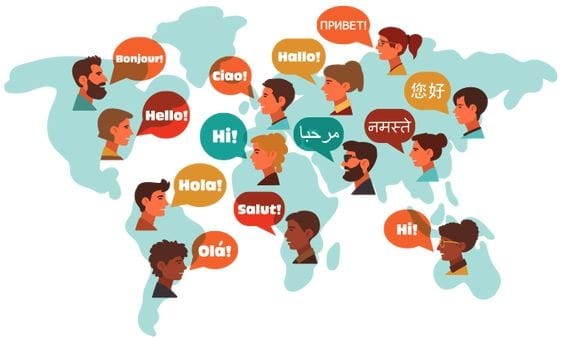The Impact of Cross-Disciplinary Knowledge Sharing!

Breaking Down Silos: The Impact of Cross-Disciplinary Knowledge Sharing
In today's rapidly evolving world, the boundaries between different fields of study and professional disciplines are becoming increasingly blurred. The traditional approach of working within isolated silos of expertise is giving way to a more interconnected and collaborative model. This shift towards cross-disciplinary knowledge sharing is not just a trend; it's a transformative force that's reshaping how we approach complex problems, innovate, and advance our understanding of the world around us.
The Power of Diverse Perspectives
At the heart of cross-disciplinary knowledge sharing lies the power of diverse perspectives. When experts from different fields come together, they bring with them unique sets of skills, methodologies, and ways of thinking. This diversity can lead to innovative solutions that might never have been conceived within the confines of a single discipline.
Consider, for example, the field of bioinformatics. This relatively new discipline emerged from the intersection of biology, computer science, and statistics. By combining expertise from these different areas, scientists have been able to make groundbreaking discoveries in genomics, develop new treatments for diseases, and gain deeper insights into the complexities of life itself.
Breaking Down Barriers in Academia
Traditionally, academia has been structured around distinct departments and disciplines. While this organization has its merits, it can also create barriers to collaboration and limit the potential for groundbreaking research. Recognizing this, many universities are now actively promoting interdisciplinary studies and research programs.
These initiatives are yielding impressive results. For instance, environmental science programs that bring together ecologists, chemists, physicists, and social scientists are tackling climate change from multiple angles simultaneously. This holistic approach not only leads to more comprehensive understanding of the issues but also generates more effective and sustainable solutions.
Moreover, interdisciplinary research often pushes the boundaries of existing fields, sometimes even creating entirely new disciplines. The emergence of fields like cognitive science, which combines psychology, neuroscience, computer science, and philosophy, illustrates how breaking down silos can lead to new frontiers of knowledge.
Cross-Pollination in the Business World
The impact of cross-disciplinary knowledge sharing extends far beyond academia. In the business world, companies that encourage collaboration across different departments and specialties often see significant benefits in terms of innovation, efficiency, and problem-solving.
Take, for example, the tech industry. The most successful tech companies don't just rely on software engineers; they bring together experts in design, psychology, linguistics, and even anthropology to create products that are not only technologically advanced but also intuitive and user-friendly. This cross-disciplinary approach has led to the development of technologies like voice assistants and predictive text, which seamlessly blend complex algorithms with deep understanding of human behavior and language.
Similarly, in the healthcare industry, the integration of technology, biology, and data science is revolutionizing patient care. From personalized medicine based on genetic profiling to AI-assisted diagnoses, these interdisciplinary innovations are improving treatment outcomes and saving lives.
Challenges and Opportunities in Cross-Disciplinary Collaboration
While the benefits of cross-disciplinary knowledge sharing are clear, it's not without its challenges. Different fields often have their own specialized languages, methodologies, and cultures, which can create barriers to effective communication and collaboration. Overcoming these obstacles requires open-mindedness, patience, and a willingness to step outside one's comfort zone.
However, these challenges also present opportunities for growth and learning. When professionals from different backgrounds come together, they not only share their expertise but also learn from each other. This mutual exchange of knowledge can lead to personal and professional development, broadening one's perspective and skill set.
Moreover, working across disciplines often requires developing new skills in communication and translation. The ability to explain complex ideas to those outside one's field and to understand concepts from other disciplines are increasingly valuable skills in today's interconnected world.
The Role of Technology in Facilitating Cross-Disciplinary Exchange
The digital age has dramatically amplified the possibilities for cross-disciplinary collaboration. Online platforms, virtual conferences, and collaborative tools have made it easier than ever for experts from different fields and geographical locations to connect and share knowledge.
Open-access journals and repositories are making research from various disciplines more accessible to a wider audience. This increased accessibility not only facilitates cross-disciplinary research but also democratizes knowledge, allowing for greater participation in scientific and intellectual discourse.
Furthermore, technologies like artificial intelligence and big data analytics are themselves products of cross-disciplinary collaboration, and they're now being used to identify patterns and connections across vast amounts of data from different fields. These tools have the potential to uncover insights and relationships that might not be apparent to human researchers, further driving innovation and discovery.
Preparing for a Cross-Disciplinary Future
As the trend towards cross-disciplinary collaboration continues to grow, it's becoming increasingly important for individuals and organizations to adapt. For students and professionals, this means cultivating a broader range of skills and knowledge beyond one's primary field of expertise. It also involves developing 'soft skills' like adaptability, communication, and teamwork, which are crucial for effective collaboration across disciplines.
Educational institutions are responding to this shift by offering more interdisciplinary programs and encouraging students to explore courses outside their main field of study. Many universities are also redesigning their physical spaces to facilitate chance encounters and collaborations between students and faculty from different departments.
For businesses, embracing cross-disciplinary approaches may involve restructuring teams, creating more flexible work environments, and fostering a culture that values diverse perspectives and collaboration. It may also mean rethinking hiring practices to prioritize candidates with interdisciplinary backgrounds or those who show a strong ability to work across different fields.
The Future of Innovation
As we look to the future, it's clear that many of the most pressing challenges we face as a society – from climate change and public health crises to ethical concerns around emerging technologies – require interdisciplinary solutions. By breaking down silos and fostering cross-disciplinary knowledge sharing, we open up new possibilities for innovation, discovery, and problem-solving.
This approach not only leads to more comprehensive and effective solutions but also drives the creation of entirely new fields of study and areas of expertise. As different disciplines continue to intersect and influence each other, we can expect to see the emergence of novel ideas, technologies, and methodologies that have the potential to transform our world in ways we can't yet imagine.
In conclusion, cross-disciplinary knowledge sharing is more than just a trend; it's a fundamental shift in how we approach learning, innovation, and problem-solving. By breaking down the silos that have traditionally separated different fields of expertise, we unlock the potential for transformative discoveries and advancements that can shape our future in positive and exciting ways.
Ready to be part of this cross-disciplinary revolution? Join our community at Sharings.me and connect with diverse thinkers, innovators, and experts from around the world. Together, we can break down barriers, share knowledge across disciplines, and create solutions that make a real difference. Don't miss out on the opportunity to expand your horizons and contribute to groundbreaking collaborations. Join Sharings.me today and be at the forefront of cross-disciplinary innovation!




